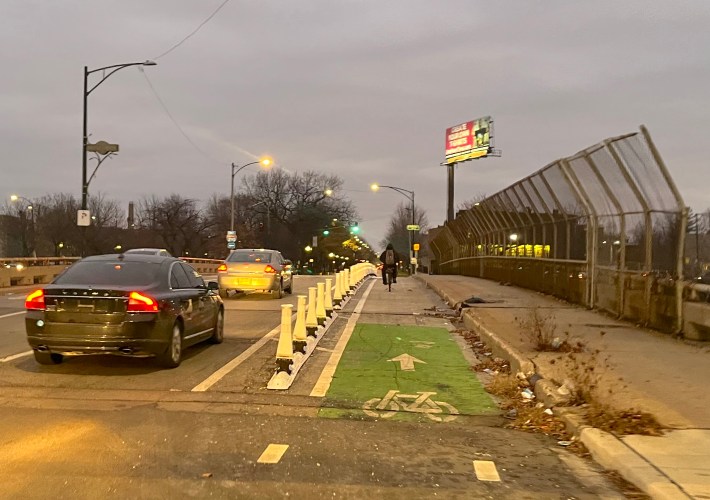Chicago Announces $2M Federal Grant to Address Harms Caused By I-290

It’s been almost seven decades since the construction of Chicago’s Eisenhower Expressway, aka I-290, began in 1955, disconnecting West Side communities and accelerating white flight. Today the City of Chicago announced that it has been awarded $2 million from the U.S. Department of Transportation’s Reconnecting Communities and Neighborhoods program. The grant is intended to help Chicago respond to the damage that 20th Century highway construction caused to urban neighborhoods, particularly communities of color.
“This funding will support the City in engaging the community, and identifying and planning infrastructure improvements to promote traffic safety and enhance accessibility and connectivity on Chicago’s West Side,” stated a news release from Mayor Brandon Johnson’s office. “These efforts will closely align with ongoing efforts to rebuild and modernize the I-290 highway and Blue Line transit corridor, led by the Illinois Department of Transportation and Chicago Transit Authority.”
The current CTA project to rehab the ‘L’ corridor is obviosly a good thing. But as Streetsblog has previously noted, IDOT’s plans to widen the Ike would lead to more driving, crashes, congestion, and pollution, and be counterproductive to fighting climate change. However the fact that there will be more money to make sustainable transportation modes safer and more appealing on the West Side is encouraging news.
“The construction of I-290 in the 1950s destroyed homes and businesses, segregating our city and displacing entire communities,” said Johnson in a statement. “Today, it continues to be a physical barrier for West Side Chicagoans, so this funding is an important step towards reconnecting these communities and improving mobility.”
According to the Mayor’s Office, over 13,000 homes, 400 businesses, and nine acres of parkland were eliminated by the construction of the expressway, which lasted 17 years until 1972. “Tight-knit communities were displaced or scattered while the new expressway system catalyzed suburban development and white flight. The effect of these physical and societal forces left poor and minority residents in disconnected neighborhoods with reduced economic opportunities.” The press release says the funding will help improve “community safety, cohesion, and quality of life through enhanced connectivity over and around the expressway.”

The City hasn’t specified exactly how the $2 million will be used. But the Mayor’s Office says the grant will help provide “improvements for people walking and bicycling on existing streets and paths surrounding and crossing the corridor, adding or enhancing pedestrian bridges and bicycle facilities” and other road network upgrades “through Complete Streets principles.”
So, while the devil’s in the details, it appears that this grant could help make it safer, more efficient, and more enjoyable to use sustainable transportation in communities that have long suffered the consequences of highway construction.
Streetsblog has reached out to local sustainable transportation and mobility justice groups for their take on the news, and this post will be updated if we hear from them.

Did you appreciate this post? Please consider making a tax-deductible donation to help Streetsblog Chicago keep publishing through 2025. Thank you.
The post City announces $2M federal grant to address harms caused by I-290 by improving walk/bike/transit access appeared first on Streetsblog Chicago.
source https://chi.streetsblog.org/2024/04/16/city-announces-2m-federal-grant-to-address-harms-caused-by-i-290-by-improving-walk-bike-transit-access

Comments
Post a Comment